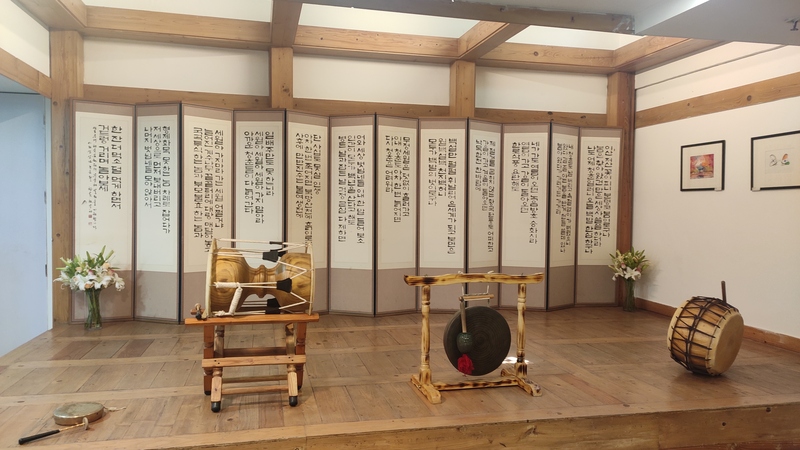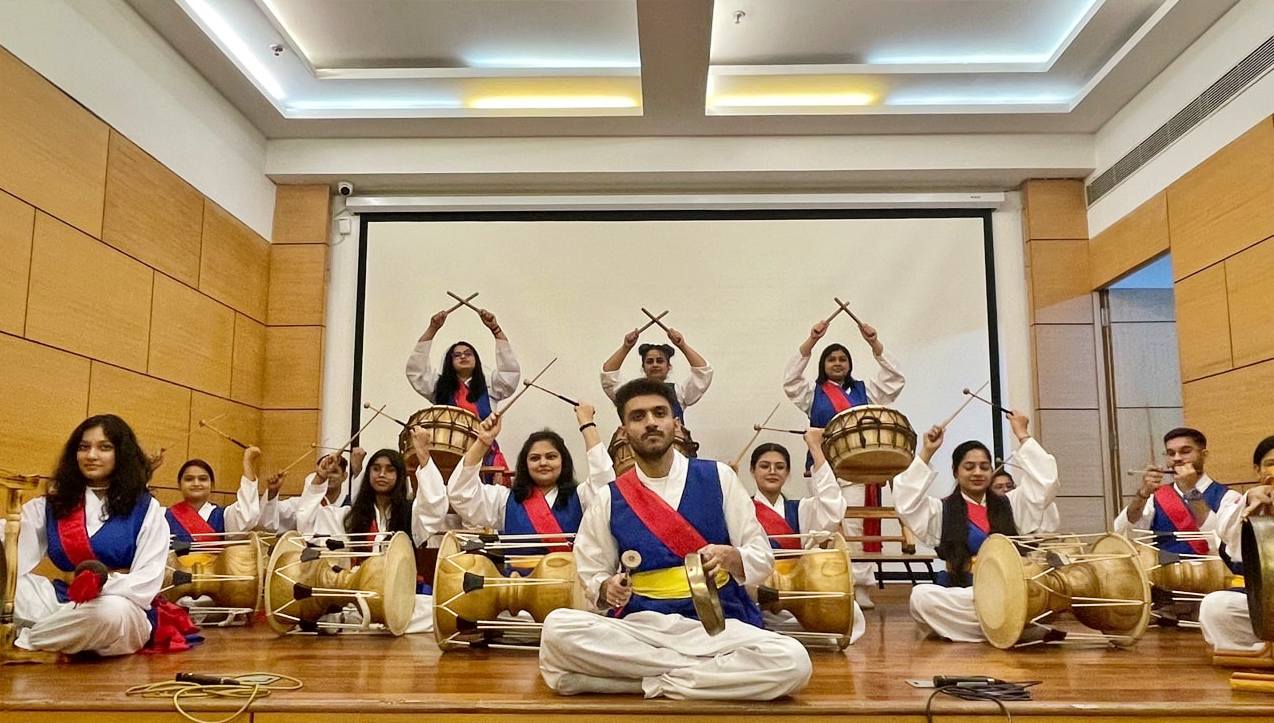- 한국어
- English
- 日本語
- 中文
- العربية
- Español
- Français
- Deutsch
- Pусский
- Tiếng Việt
- Indonesian
By Honorary Reporter Anushree Taparia from India
Photos = Anushree Taparia, Korean Culture Center in India
On May 26, The Korean Culture Center (KCC) in New Delhi, India, completed a course on samulnori (traditional percussion music), capped off by a performance by the students, in resuming offline activities with the easing of COVID-19 restrictions.
Samulnori was performed by farmers to ensure and celebrate a good harvest. Its four instruments feature sounds representing weather conditions. The kkwaenggwari (small gong) represents thunder, janggu (hourglass-shaped drum) rain, jing (large gong) sounds of the wind, and buk (barrel drum) clouds.

Samulnori is performed with four traditional instruments. I took this photo at Korean Culture Centre India on March 22.
Enrollment in the classes filled up within a minute after applications were opened. For over two months, students including myself learned the basics of the four instruments. Fellow students came from a variety of backgrounds like collegians and even working professionals, all united by their interest in Hallyu and learning traditional folk music.
Throughout the course, we were taught beats called jangdan and could choose the instrument we wanted to play. For the final performance, students were split into two groups, with one playing the traditional samulnori beats Hwimori and Byeoldalguri and the other playing a samulnori version of the BTS hit "Idol."
Surrounded by family and friends, the students dressed in traditional clothes at the closing ceremony and received certificates of completion for the course. Korean snacks were served afterwards.

We congratulate all the samulnori students whose hard work earned them an experience of a lifetime to cherish. (Korean Culture Center in India)
This journey brought me closer to a part of Korean culture that I knew little about. Folk music represents a country's age-old traditions, lifestyle and cultural values, and to discover this side of Korea was a pleasure.
enny0611@korea.kr
*This article is written by a Korea.net Honorary Reporter. Our group of Honorary Reporters are from all around the world, and they share with Korea.net their love and passion for all things Korean.